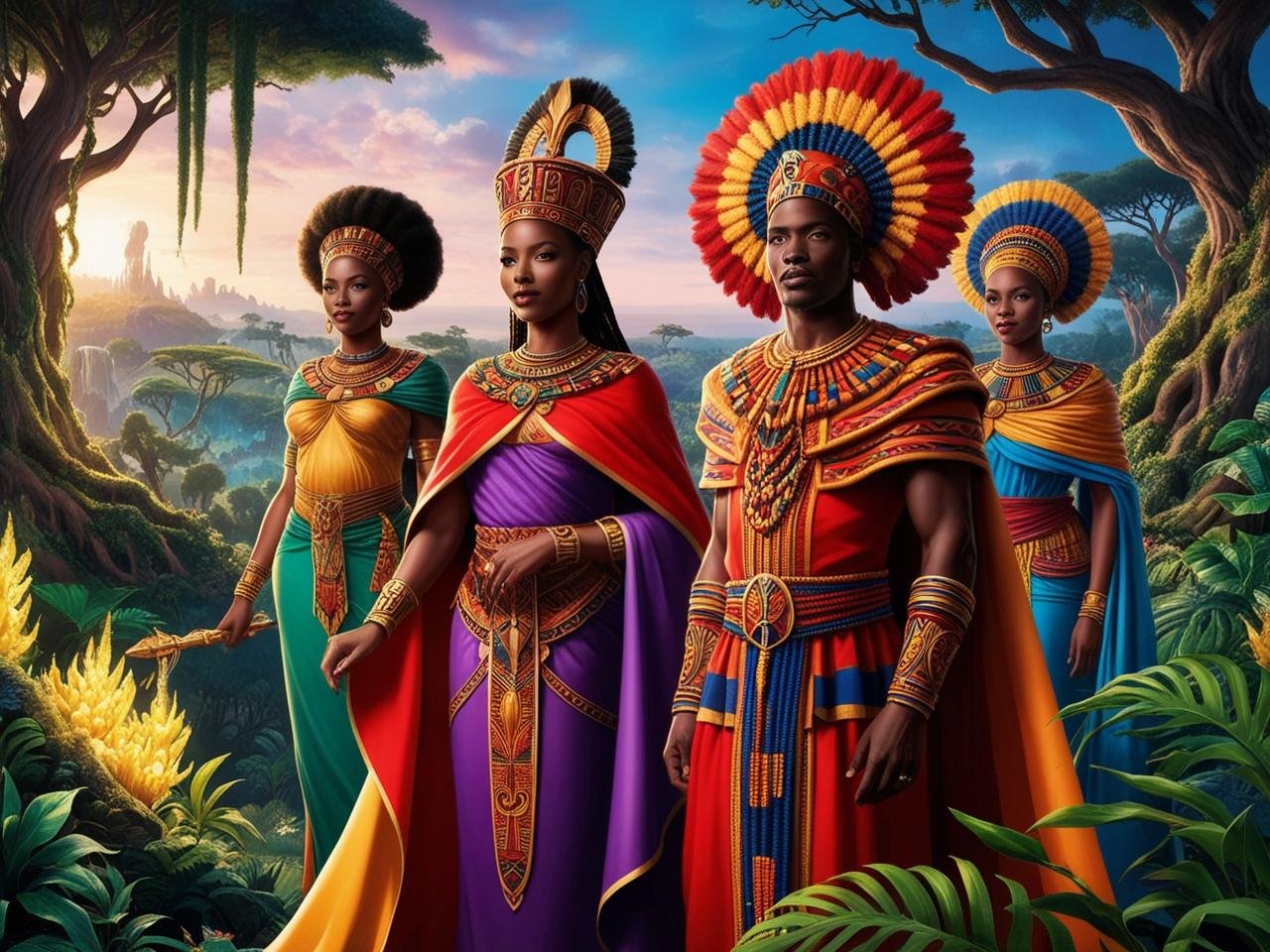
African storytelling, with its rich and diverse traditions, has always been a cornerstone of the continent’s cultural heritage. From the ancient days of oral narratives to the digital age, storytelling in Africa has evolved while retaining its essence as a means to preserve history, educate, and entertain. The oral tradition, characterized by the griots or storytellers, played a pivotal role in African communities. These skilled narrators were not just entertainers but custodians of history and wisdom, passing down tales through generations.
As the continent progressed, so did its storytelling mediums. The advent of written literature marked a significant shift. Notable figures such as Chinua Achebe and Ngũgĩ wa Thiong’o emerged, using literature to capture and convey the African experience. Their works provided a written record of the stories that had been orally transmitted for centuries, ensuring the preservation of cultural narratives in the face of colonial and post-colonial challenges.
The introduction of radio and television further transformed African storytelling. Radio dramas became immensely popular, bringing stories to a wider audience and creating a shared cultural experience. Television followed suit, offering visual narratives that captivated and educated viewers. These mediums allowed for the portrayal of contemporary issues and traditional stories in new, engaging formats, ensuring that the essence of African storytelling adapted to modern times.
However, the transition from traditional to contemporary storytelling has not been without challenges. One significant issue has been maintaining authenticity while embracing new formats. Storytellers face the task of preserving the cultural and historical integrity of their narratives amidst the pressures of commercialization and globalization. Movements and initiatives have sprung up to address these challenges, emphasizing the importance of staying true to the roots of African storytelling.
Key historical figures and movements have been instrumental in this evolution. The African Writers Series, established in the 1960s, played a crucial role in promoting African literature globally. Similarly, contemporary platforms and digital initiatives are now emerging, aiming to bring African stories to a broader audience while preserving their authenticity. These efforts ensure that African storytelling continues to thrive, adapting to the times while honoring its rich heritage.
The advent of digital storytelling platforms in Africa marks a significant transformation in how narratives from the continent are created, shared, and consumed. These platforms have democratized storytelling by providing a space for diverse voices and narratives that might otherwise be marginalized. The proliferation of internet access, mobile technology, and social media has been pivotal in enabling this shift, making it easier for storytellers to reach a wider audience.
Technological advancements have played a crucial role in the rise of digital African storytelling platforms. With the increasing availability of affordable smartphones and improved internet connectivity, more individuals have the opportunity to engage with digital content. Social media platforms further amplify these stories, allowing them to reach a global audience. This has led to the emergence of various successful digital storytelling platforms across the continent.
One notable example is “Okadabooks,” a Nigerian platform that allows authors to self-publish their works, reaching readers directly. Another is “Afrocentric,” which focuses on short films and documentaries that highlight African culture and history. These platforms employ various user engagement strategies, such as interactive features, community forums, and social media integration, to foster a sense of community and encourage active participation from their audiences. This not only enhances user experience but also ensures that a wide range of stories are told and heard.
The impact of these platforms extends beyond mere entertainment. They play a crucial role in cultural preservation by documenting and disseminating traditional stories and practices. Educationally, they provide accessible resources for learning about African history, languages, and cultures. Economically, they offer new opportunities for content creators, fostering a growing creative industry on the continent. Furthermore, these platforms contribute to the global dissemination of African narratives, challenging stereotypes and offering a more nuanced understanding of the continent’s diverse cultures and experiences.
In essence, the rise of digital African storytelling platforms signifies a new era of narrative empowerment. By leveraging technology, these platforms are bridging gaps, fostering inclusivity, and ensuring that African stories are told by African voices, for both local and global audiences.